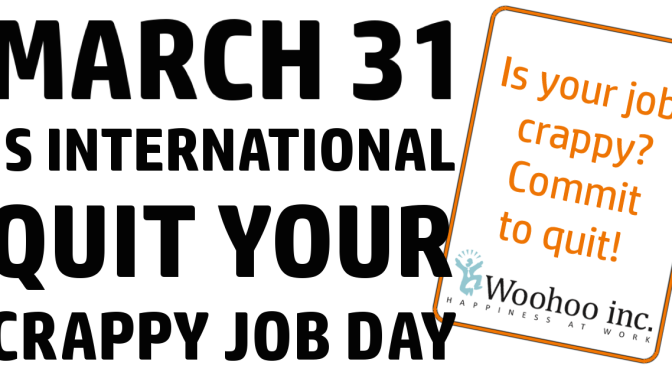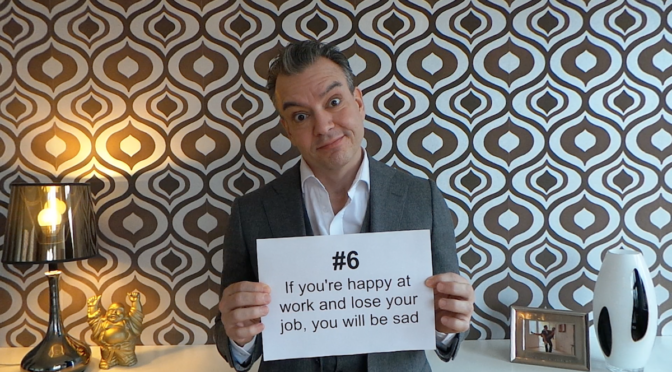 Discussing public policy in Dubai
Discussing public policy in Dubai
Given that happy companies have significant competitive advantages, governments have a strong interest in enacting public policies that promote happiness at work in their country.
But what exactly could a government do to achieve this?
At the World Government Summit in Dubai earlier this month I was part of a panel that discussed how public policy could promote workplace happiness.
We had a fascinating and wide-ranging discussion and came up with many cool ideas. Some of these may seem radical or weird but many of them are already in place in countries around the world.
Here are 11 ideas I would suggest:
1: Regulate and inspect psychological workplace safety
Pretty much every country has a government agency that sets requirements for physical workplace safety and sends out inspectors to visit e.g. factories and construction sites to make sure that the correct safety equipment is being used and that workers are following safety regulations.
So why not do the same for psychological workplace safety?
In the Scandinavian countries, this is actually in place. The Working Environment Authorities conduct inspections in cases where they suspect that working conditions are psychologically unsafe. They inspect things like:
- Amount of work and time pressure
- High emotional costs of labor
- Bullying and sexual harassment
- Contradictory or unclear work requirements
If they find that the workplace is psychologically unsafe they can issue orders that the company must follow. In serious cases they can even issue fines.
Breaking a leg because you trip over something at work is painful and can take a long time to heal. But make no mistake about it: being bullied by your boss or working under constant stress can affect your mental and physical health just as severely.
Therefore it makes perfect sense to mandate standards for psychological workplace safety and inspect workplaces to make sure they’re followed.
2: Regulate against permanent overwork
In Denmark, we have laws protecting employees from permanent overwork. The result is that Danes tend to leave work at a reasonable hour most days, and they also get five to six weeks of vacation per year, several national holidays and up to a year of paid maternity/paternity leave. While the average American works 1,790 hours per year, the average Dane only works 1,450.
Even Japan where the culture of overwork is so rampant that they have a word called karoshi that means death from overwork, is trying to enact similar laws:
The law, introduced as a response to the social problem that has been serious since the late 1980s, makes it the state’s responsibility to take steps to prevent death from overwork. It calls on the government to study the situation of heavy workloads that impair the health of company workers and lead them to take their own life.
Protecting employees from permanent overwork makes them happier and more productive.
3: Mandate employee representation on board of directors
Here’s another idea from Scandinavia – give employees representation on the board of directors:
Employees in Danish companies employing 35 employees or more, are entitled to elect a number of representatives to the board of directors. The number elected by employees should correspond to half the number elected by those who own the company at the general meeting, and should be at least two.
Crucially these employee representatives are not mere observers – they have all the same powers and responsibilities as the “regular” board members.
This means that employees are informed about and have influence on major strategic decisions.
4: Make government workplaces role models
I would love to see governments take a leading role by making public sector workplaces among the best in the country.
Sadly, the public sector usually has a bit of an inferiority complex. Since they usually can’t offer the same salaries, perks and incentives as private sector workplaces, they feel that they can’t be as good workplaces.
However, it turns out that those factors matter very little for workplace happiness, as long as they’re fair. However, public sector workplaces have a huge potential for being happy because they can offer something that many private workplaces struggle to give their employees: Meaningful work.
Public organizations almost by definition work for an important purpose. Schools educate children, hospitals heal the sick, city planners create better and more liveable cities – even the garbage men play a huge role in making people’s lives easier and better.
By contrast, let’s say you work in an ad agency. The end result of your hard work might be that some company somewhere sells a fraction more detergent. Is that really meaningful to you?
If public sector workplaces would take the lead on offering their employees things like meaningful work, great leadership, good working conditions, work/life balance, professional development and employee empowerment they could serve as role models for all workplaces.
5: Promote lifelong learning
When a government makes education available cheap or free to its citizens, there is a much bigger chance that they get to realize their full potential and become happy at work.
And this should not be limited to young people. Lifelong learning should make it easy and affordable for anyone to upgrade their skills so they can get different or more interesting work.
6: Require companies to measure and report on employee happiness
Pretty much all countries require strict financial reporting from companies.
So why not require companies to measure and report on employee happiness?
7: Require all government suppliers to be certified happy workplaces
The government of any nation buys huge amounts of goods and services from private sector companies.
No government should knowingly buy from a company that used slave labor or child labor or polluted the environment.
So why not require that all government suppliers be good workplaces?
8: Don’t hobble trade unions
Trade unions have a somewhat mixed reputation and can fall victim to corruption or cronyism.
However, on the whole it is clear from the research that collective bargaining is a powerful tool to improve working conditions not just for union members but for all workers in many areas including compensation, vacation time, maternity/paternity leave and workplace safety.
Employers and lobbyists in some countries are trying to restrict unions, making it easier for employers to keep costs low. If a government protects workers’ rights to organize, the result is better working conditions and happier workplaces.
9: Celebrate the best workplaces
Several private companies conduct surveys to find the best workplaces in different countries, but these rankings are always limited to those workplaces that pay to be included. This limits their usefulness.
So why not let the state publish a ranking of the best workplaces in the country?
10: Make unemployment benefits widely available and liveable
When unemployment benefits are too low to live on or too hard to obtain, employees are locked in to their jobs, because leaving a bad workplace could have disastrous financial consequences.
However, when unemployment benefits support a decent standard of living and are available also to people who quit a job, getting away from a toxic workplace is much easier.
11: Make bad workplaces and managers legally responsible for the harm they cause
If a workplace is run in a way that systematically harms its employees mental health, causing stress and depression, it should be possible to hold the leadership of that company legally accountable.
We already do this for workplaces that don’t live up to physical workplace safety regulations – serious violations can lead to fines or even jail time for the managers responsible.
I think it makes perfect sense to do the same for companies or managers that harm their employees mental health.
The point
Any government has an interest in enacting public policies that strengthen the competitive advantage of companies in that country.
However, this is often done by cutting corporate taxes, deregulation or corporate subsidies – none of which have much of a track record of success.
If a government is truly serious about giving companies a sustained, strong competitive advantage, they should really focus on policies that create happier workplaces.
This would not only be good for the companies and the employees, it would also be good for the national economy, as it would boost national productivity and reduce absenteeism, stress and related healthcare costs.







 Discussing public policy in Dubai
Discussing public policy in Dubai



 Danish hospital wear – stylish AND flattering :)
Danish hospital wear – stylish AND flattering :)



